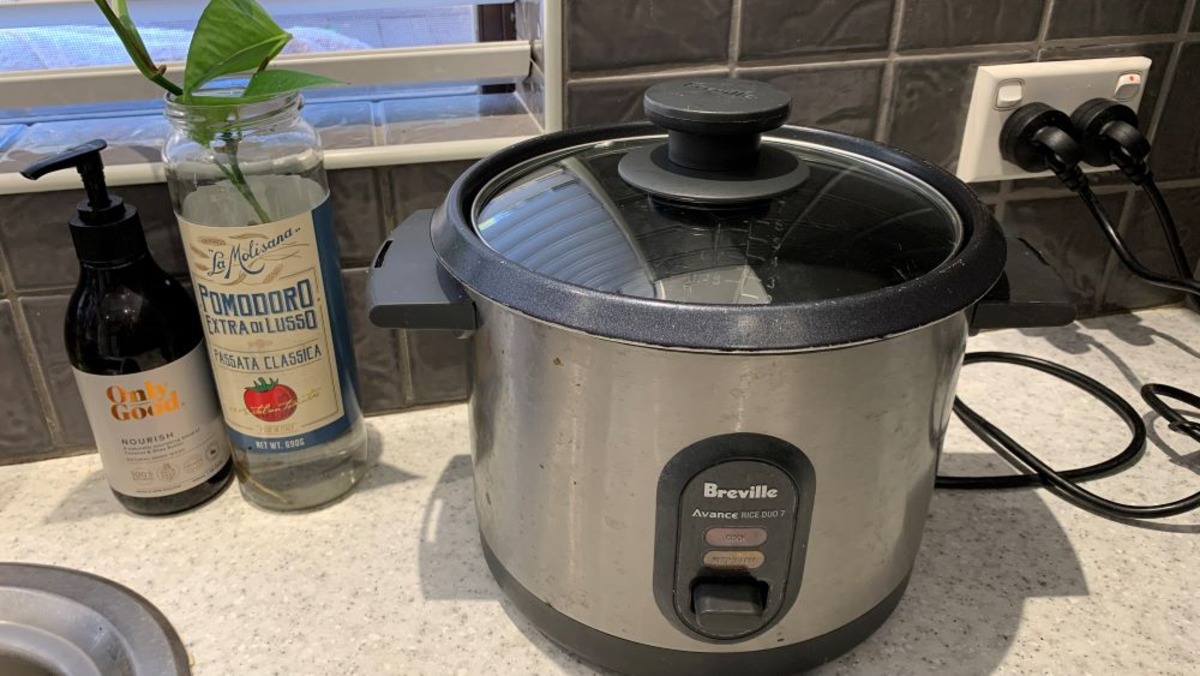

Articles
How Long Does A Rice Cooker Last
Modified: December 6, 2023
Learn how long a rice cooker can last and get tips on maintaining its longevity. Read more articles on rice cookers and kitchen appliances.
(Many of the links in this article redirect to a specific reviewed product. Your purchase of these products through affiliate links helps to generate commission for Storables.com, at no extra cost. Learn more)
Introduction
A rice cooker is a handy kitchen appliance that saves time and effort in cooking perfect rice. Whether you are a fan of fluffy white rice or prefer indulging in fragrant and flavorful varieties like jasmine or basmati rice, a rice cooker can make the process hassle-free. But just like any other appliance, a rice cooker has a limited lifespan and will eventually wear out.
In this article, we will explore the factors that can affect the lifespan of a rice cooker, the average lifespan you can expect from this appliance, the telltale signs that indicate a rice cooker is nearing its end, and some essential tips to help you prolong its lifespan.
Let’s dive in and learn more about how long a rice cooker can last!
Key Takeaways:
- Proper care, maintenance, and investing in a high-quality rice cooker can extend its lifespan to 5-10 years. Recognizing signs of wear and tear is crucial for making informed decisions about repairs or replacements.
- Following manufacturer’s instructions, regular cleaning, using the correct water amount, and addressing repairs promptly are essential for maximizing the longevity of a rice cooker. By adopting good habits, you can enjoy perfectly cooked rice for many years.
Read more: How Long Does Roof Last
Factors Affecting the Lifespan of a Rice Cooker
The lifespan of a rice cooker can vary depending on several factors. Understanding these factors is essential for determining how long your rice cooker will last. Let’s take a closer look at some of the key factors that can impact the lifespan of a rice cooker:
- Build Quality: The build quality of a rice cooker is a crucial factor in determining its lifespan. High-quality rice cookers made with durable materials are more likely to last longer. Look for models with stainless steel inner pots and solid construction.
- Frequency of Use: The more frequently you use your rice cooker, the faster it may wear out. Constant use can put strain on the internal components and lead to faster deterioration. If you use your rice cooker daily, it might not last as long as one used only occasionally.
- Care and Maintenance: Proper care and maintenance play a significant role in prolonging the lifespan of a rice cooker. Regular cleaning, descaling, and following the manufacturer’s instructions for care and maintenance can help prevent issues and extend its lifespan.
- Power Surges and Electrical Issues: Power surges and electrical problems can damage the internal circuitry of a rice cooker. Using a surge protector and ensuring a stable power supply can help protect your appliance from these issues.
- Heat Exposure: Rice cookers generate heat to cook rice, and excessive exposure to heat can affect the internal components over time. Avoid placing your rice cooker near other heat sources, such as stovetops or ovens, as this can cause it to degrade more quickly.
- Water Quality: The quality of the water you use in your rice cooker can also impact its lifespan. Hard water with high mineral content can lead to mineral buildup and affect the performance of the rice cooker. Regular cleaning and descaling can help mitigate this issue.
Keep in mind that these factors are not mutually exclusive, and the lifespan of a rice cooker can be influenced by a combination of these factors. It’s important to consider these factors when purchasing a rice cooker and to take proper care of it to ensure it lasts as long as possible.
Average Lifespan of a Rice Cooker
The lifespan of a rice cooker can vary depending on the quality of the appliance and how well it is maintained. On average, a rice cooker can last anywhere from 5 to 10 years. However, with proper care and maintenance, some high-quality rice cookers have been known to last even longer.
Lower-end rice cookers, typically made with cheaper materials, may have a shorter lifespan of around 2 to 5 years. These models may be more affordable but often lack the durability needed for long-term use.
On the other hand, higher-end rice cookers, constructed with sturdy materials and advanced features, tend to have a longer lifespan. These premium models, made by reputable brands, can last upwards of 10 years or more with regular maintenance.
It’s worth noting that the average lifespan mentioned here is just an estimate, and individual experiences may vary. Factors such as usage frequency, care, and the specific brand and model of the rice cooker can all influence its longevity. By investing in a high-quality rice cooker and taking proper care of it, you can maximize its lifespan and get the most out of your appliance.
Clean your rice cooker regularly to prevent buildup and extend its lifespan. Follow the manufacturer’s instructions for maintenance and use.
Signs that Indicate a Rice Cooker is Nearing the End of Its Lifespan
Like any other appliance, a rice cooker will eventually show signs of wear and tear as it reaches the end of its lifespan. If you start noticing any of the following signs, it may be an indication that your rice cooker is nearing the end:
- Inconsistent Cooking: A rice cooker that used to cook rice perfectly but now produces inconsistent results, such as undercooked or overcooked rice, could be a sign of internal component degradation. This can include issues with the heating element or thermostat.
- Poor Performance: If your rice cooker is taking longer than usual to cook rice or if it has trouble maintaining a consistent temperature, it may be a sign that the appliance is wearing out. This can result in unevenly cooked rice or rice that is not as fluffy as before.
- Visible Damage: Physical damage to the rice cooker, such as cracks in the housing or a damaged inner pot, can indicate that the appliance is nearing the end of its lifespan. These damages can affect the performance and safety of the rice cooker.
- Strange Noises or Smells: Unusual noises, such as grinding or rattling, can be a sign of worn-out bearings or other internal components. Additionally, strange smells during operation, like burning or electrical odors, may indicate electrical issues.
- Frequent Breakdowns: If your rice cooker needs constant repairs or has been experiencing frequent breakdowns, it may be a sign that it is approaching the end of its lifespan. In such cases, continuous repairs might not be worth the cost, and it could be time to consider a replacement.
It’s important to note that these signs may not necessarily mean your rice cooker is completely unusable. However, they suggest that the appliance may not perform optimally and may require more frequent repairs.
If you notice any of these signs and your rice cooker is out of warranty, it might be a good time to start considering a replacement. Investing in a new rice cooker will ensure that you can continue to enjoy perfectly cooked rice without the hassle or compromise in quality.
Tips for Prolonging the Lifespan of a Rice Cooker
While the lifespan of a rice cooker is not entirely within our control, there are several steps we can take to maximize its longevity and ensure it serves us well for years to come. Here are some essential tips for prolonging the lifespan of your rice cooker:
- Read and Follow the Manufacturer’s Instructions: Familiarize yourself with the user manual and guidelines provided by the manufacturer. Follow the recommended usage and care instructions to ensure you are using the rice cooker correctly.
- Clean and Descale Regularly: Regular cleaning and descaling are vital for maintaining optimal performance. Clean the inner pot, lid, and other removable parts after each use. Also, descale the rice cooker periodically to remove mineral deposits that can affect its functionality.
- Avoid Abrasive Cleaners and Utensils: Use gentle, non-abrasive cleaners and soft sponges or brushes when cleaning your rice cooker. Avoid harsh chemicals and abrasive utensils that can scratch or damage the appliance.
- Use the Correct Amount of Water: Follow the recommended water-to-rice ratio provided in the user manual. Using too much or too little water can impact the cooking performance and potentially damage the rice cooker over time.
- Use Distilled or Filtered Water: If your water source has high mineral content, consider using distilled or filtered water in your rice cooker. This can help prevent mineral buildup, prolonging the lifespan of the appliance.
- Avoid Cooking Other Foods: While rice cookers are versatile and can be used for other dishes, it’s best to avoid cooking other foods that may require higher temperatures or longer cooking times. This can help prevent excessive wear and tear on the internal components.
- Store Properly: When not in use, store your rice cooker in a dry and cool area away from direct heat sources. Avoid storing it in places prone to excessive humidity or extreme temperatures.
- Handle with Care: Be gentle when handling your rice cooker, both during use and cleaning. Avoid dropping or banging the appliance as this can cause damage to internal components.
- Address Repairs Promptly: If you notice any issues or signs of malfunction, address them promptly. Continuing to use a faulty rice cooker can lead to further damage, so it’s crucial to get it repaired as soon as possible.
- Consider Power Surge Protection: Using a surge protector can help protect your rice cooker from power surges and electrical issues. This additional layer of protection can prevent damage to the internal circuitry.
By following these tips and adopting good habits in using and maintaining your rice cooker, you can significantly increase its lifespan and enjoy perfectly cooked rice for many years.
Read more: How Long Does Coffee Last In Freezer
Conclusion
In conclusion, a rice cooker is a valuable kitchen appliance that simplifies the process of cooking rice. Understanding the factors that affect its lifespan, recognizing the signs of wear and tear, and implementing proper care and maintenance can help you maximize the longevity of your rice cooker.
Factors such as build quality, frequency of use, care and maintenance, power surges, heat exposure, and water quality all contribute to the lifespan of a rice cooker. Investing in a high-quality rice cooker made with durable materials can increase its lifespan and ensure optimal performance.
On average, a rice cooker can last between 5 to 10 years, although this can vary depending on the model and how it is used and maintained. Lower-end rice cookers may have a shorter lifespan compared to higher-end models, but proper care can help prolong their usability.
There are several signs that indicate a rice cooker is nearing the end of its lifespan, such as inconsistent cooking, poor performance, visible damage, strange noises or smells, and frequent breakdowns. Recognizing these signs can help you make informed decisions about repairs or replacements.
To extend the lifespan of your rice cooker, it is important to follow the manufacturer’s instructions, clean and descale regularly, use the correct amount of water, avoid abrasive cleaners, and store and handle the appliance with care. Promptly addressing repairs and considering power surge protection can also contribute to prolonging its lifespan.
By implementing these tips and taking proper care of your rice cooker, you can ensure it serves you well for years, consistently delivering perfectly cooked rice for you and your family to enjoy.
So, make the most out of your rice cooker, and savor every delicious grain of rice it prepares, knowing that you have taken the necessary steps to keep it in optimal condition for as long as possible.
Frequently Asked Questions about How Long Does A Rice Cooker Last
Was this page helpful?
At Storables.com, we guarantee accurate and reliable information. Our content, validated by Expert Board Contributors, is crafted following stringent Editorial Policies. We're committed to providing you with well-researched, expert-backed insights for all your informational needs.

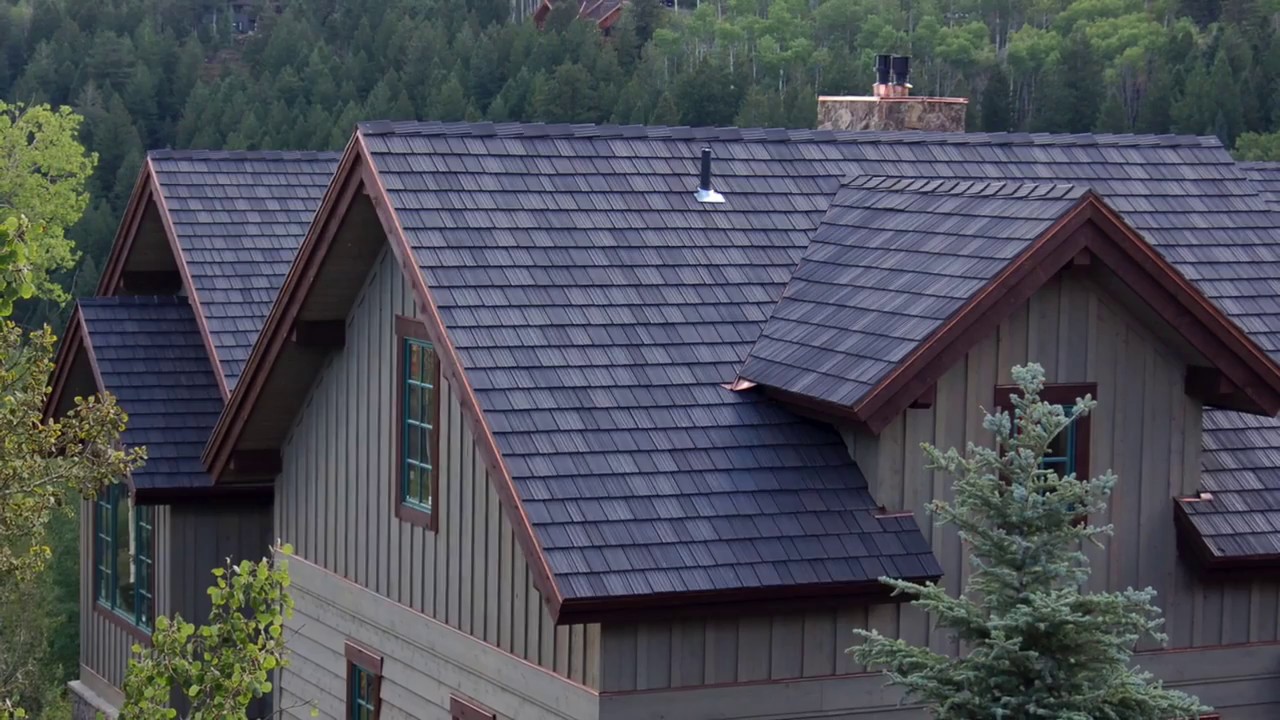

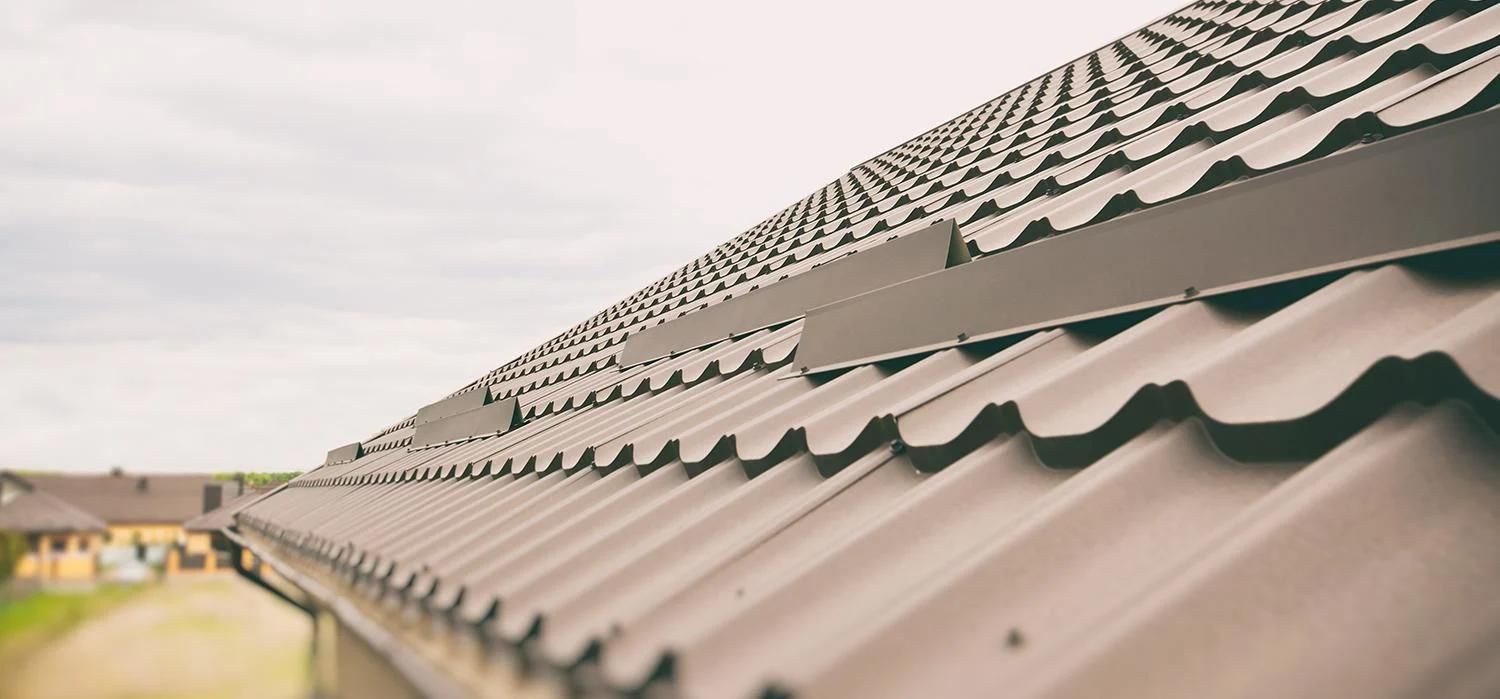
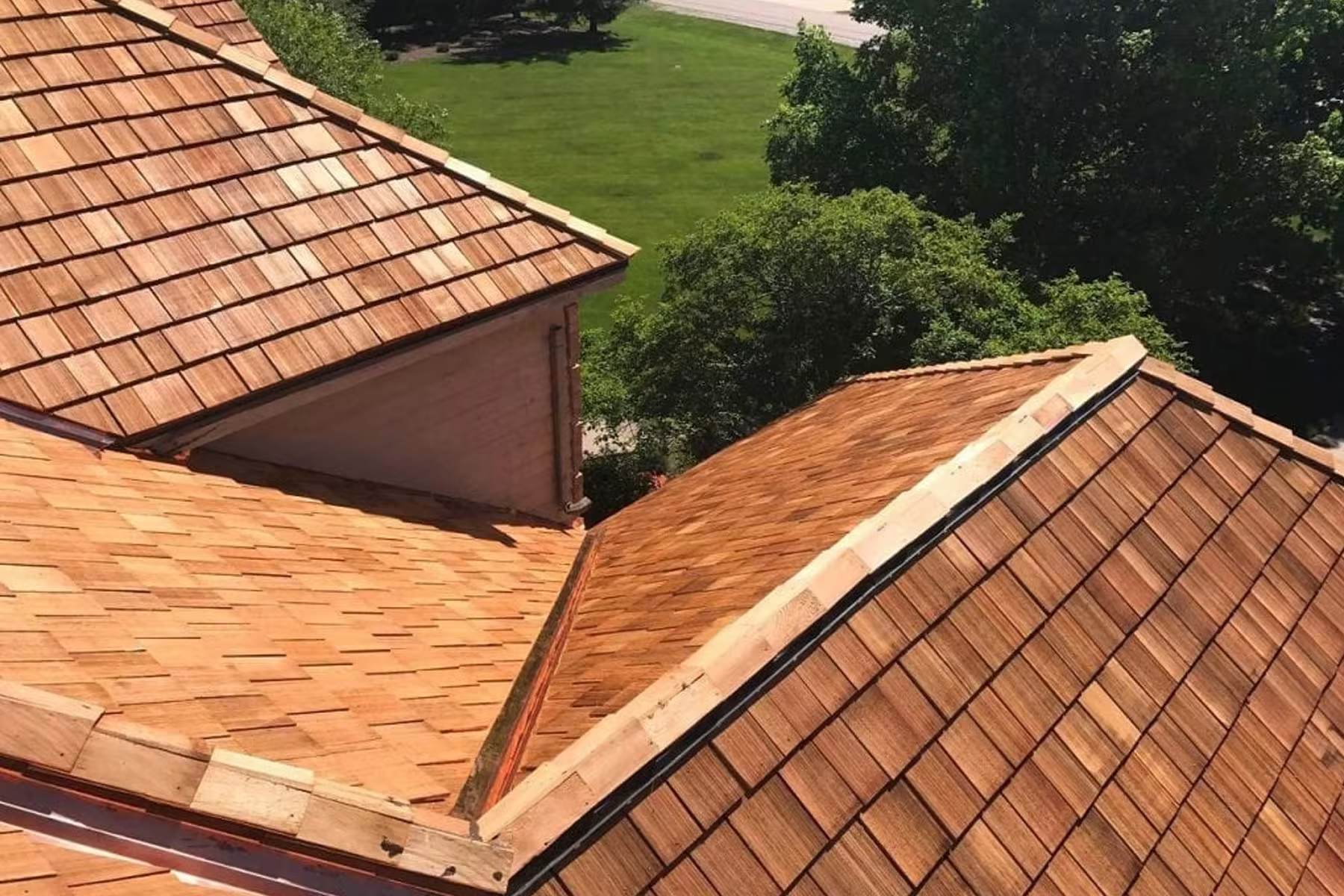

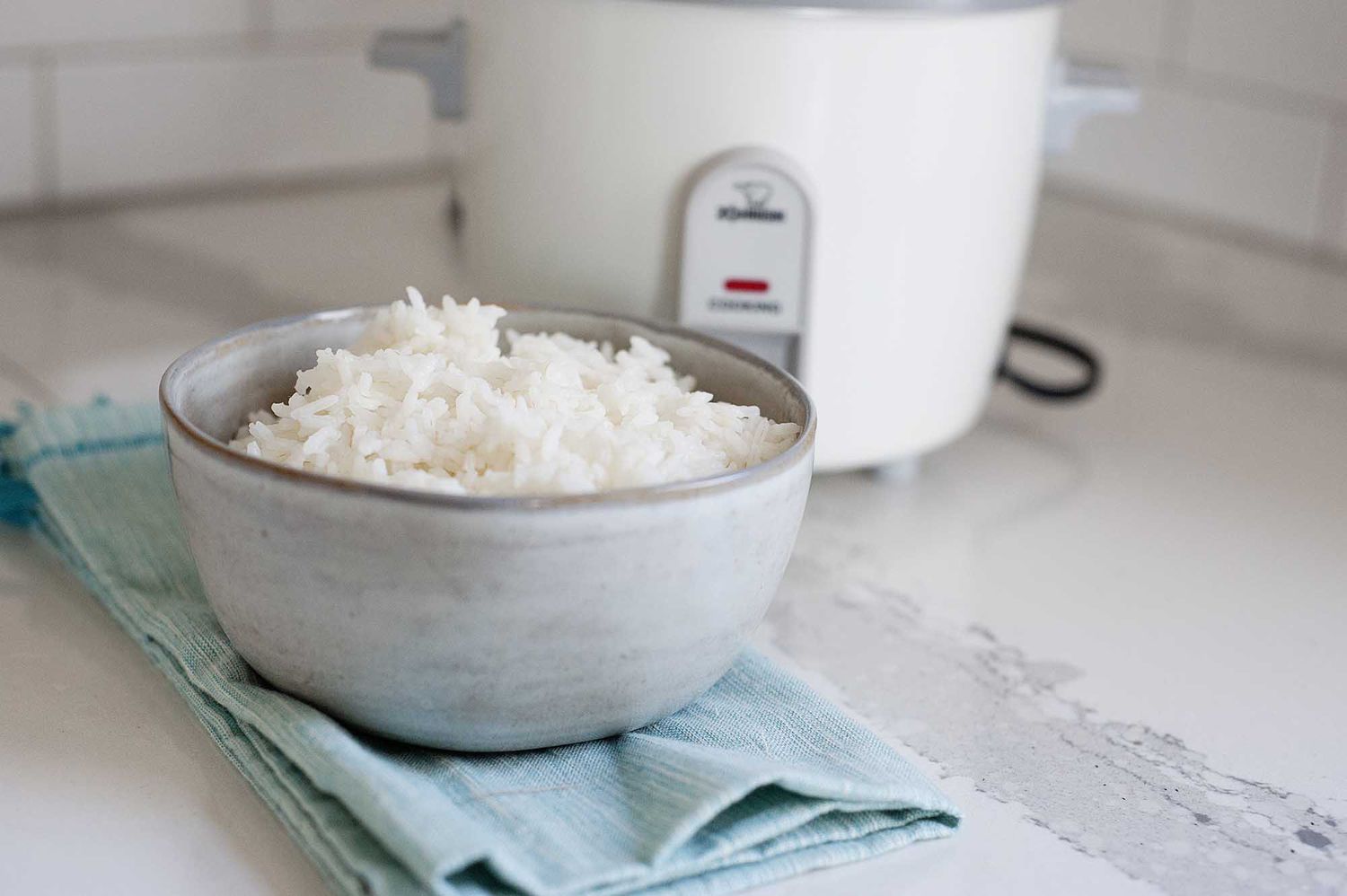
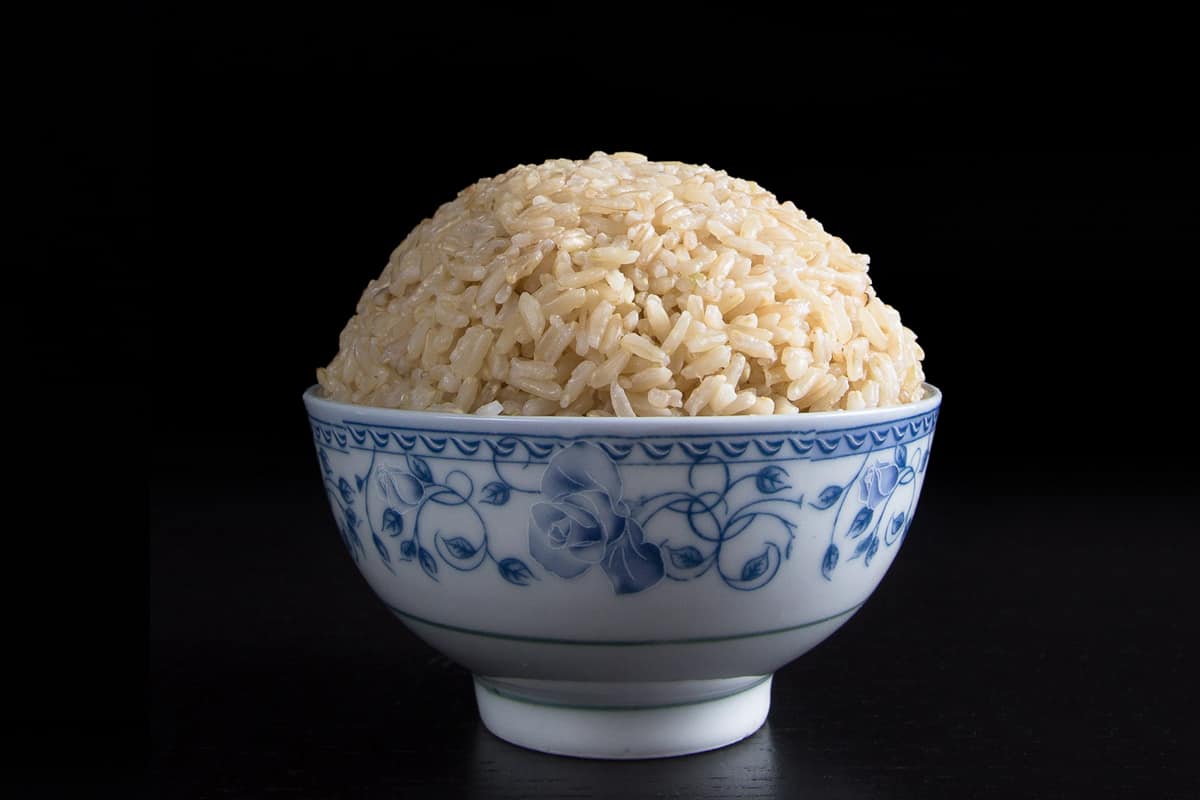
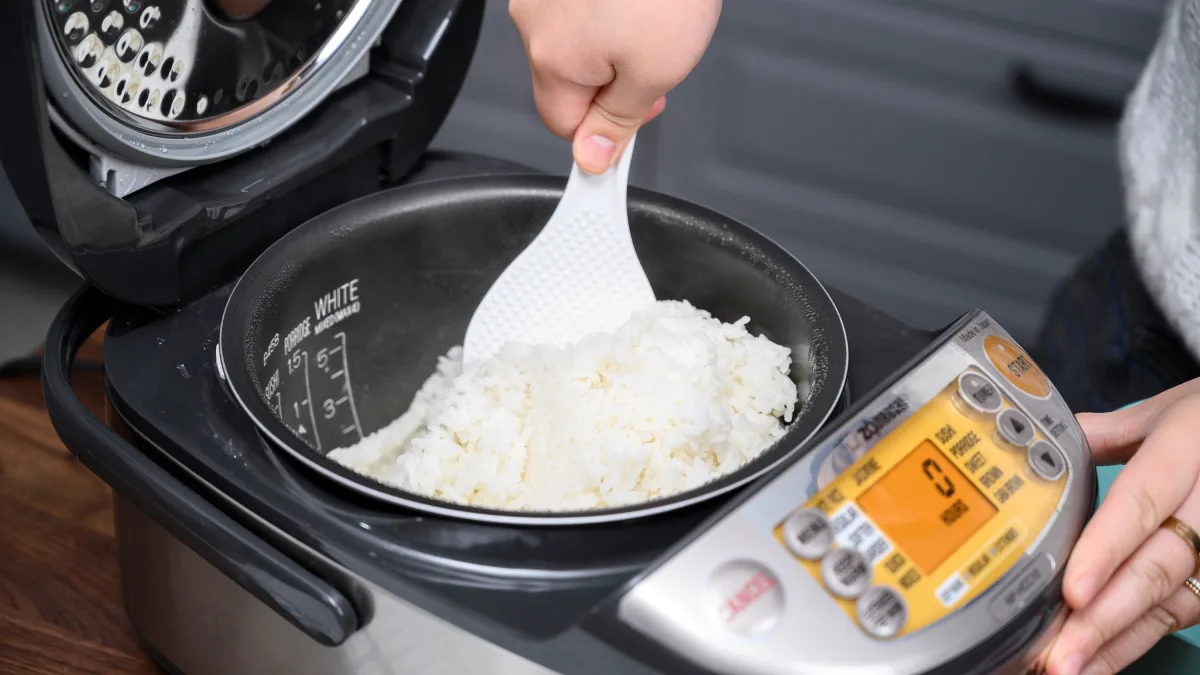
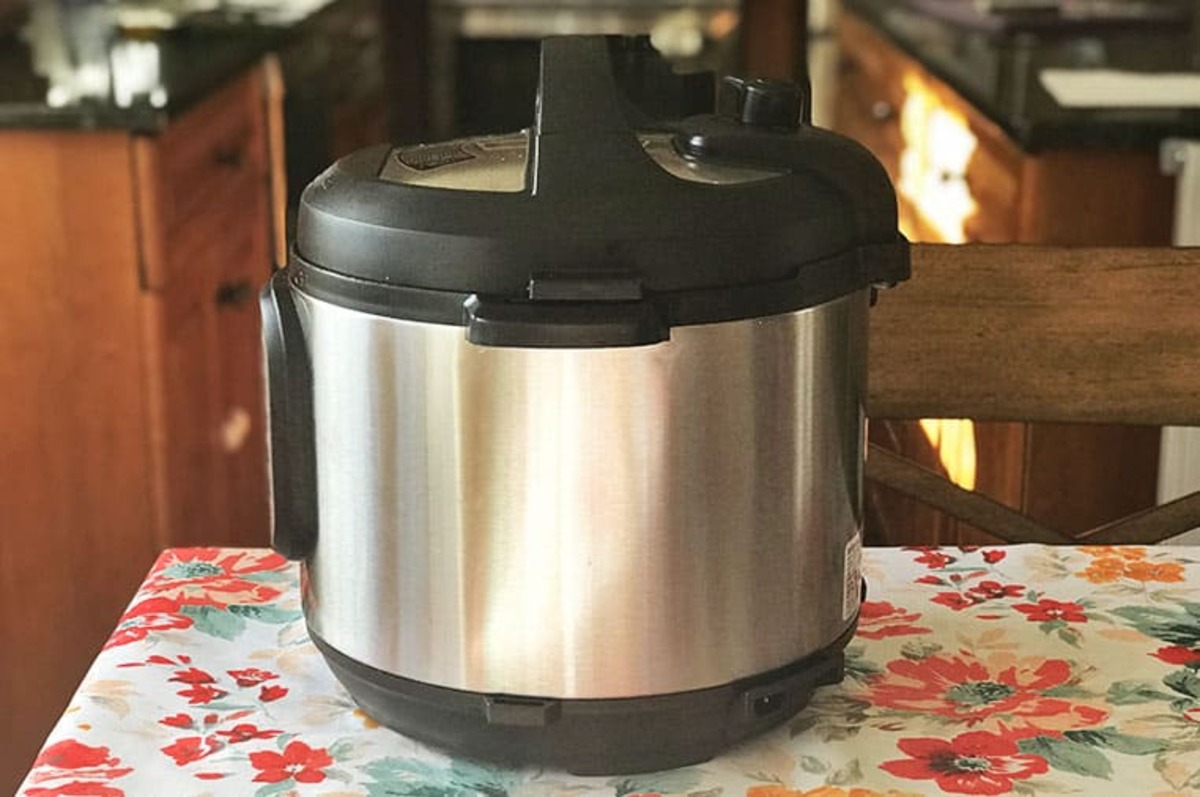
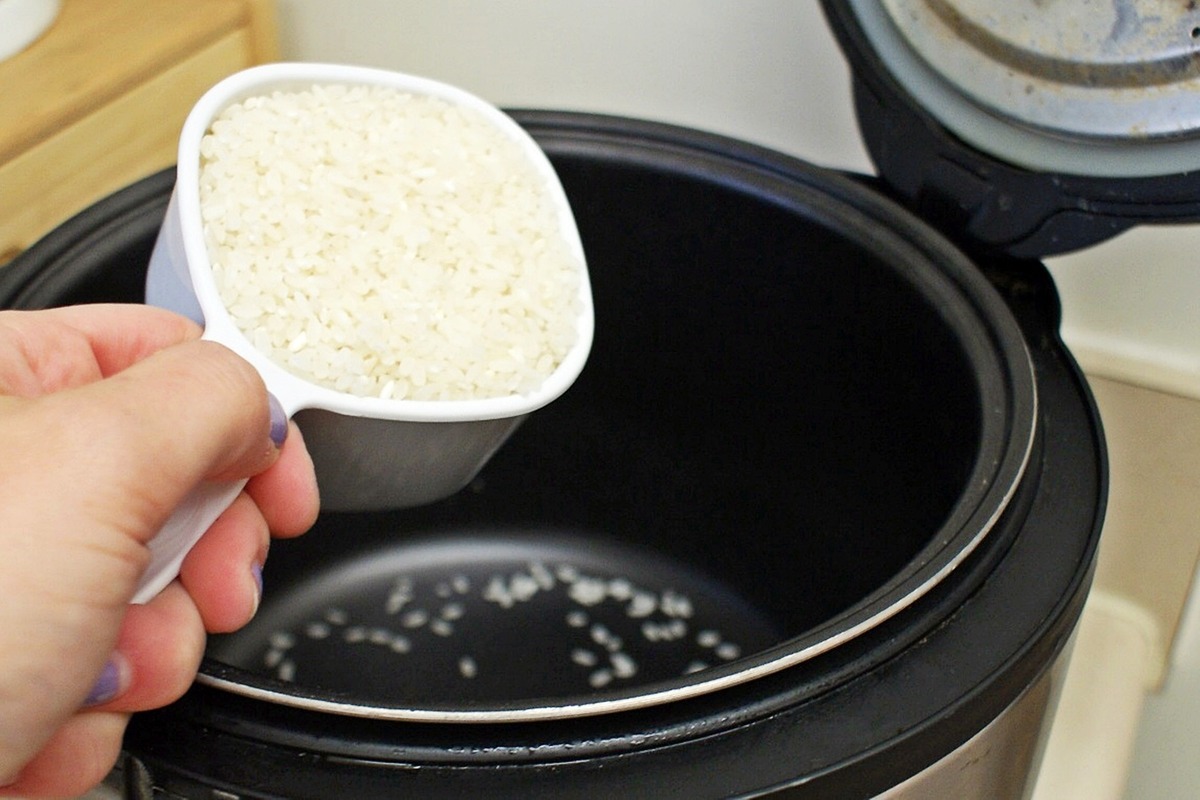
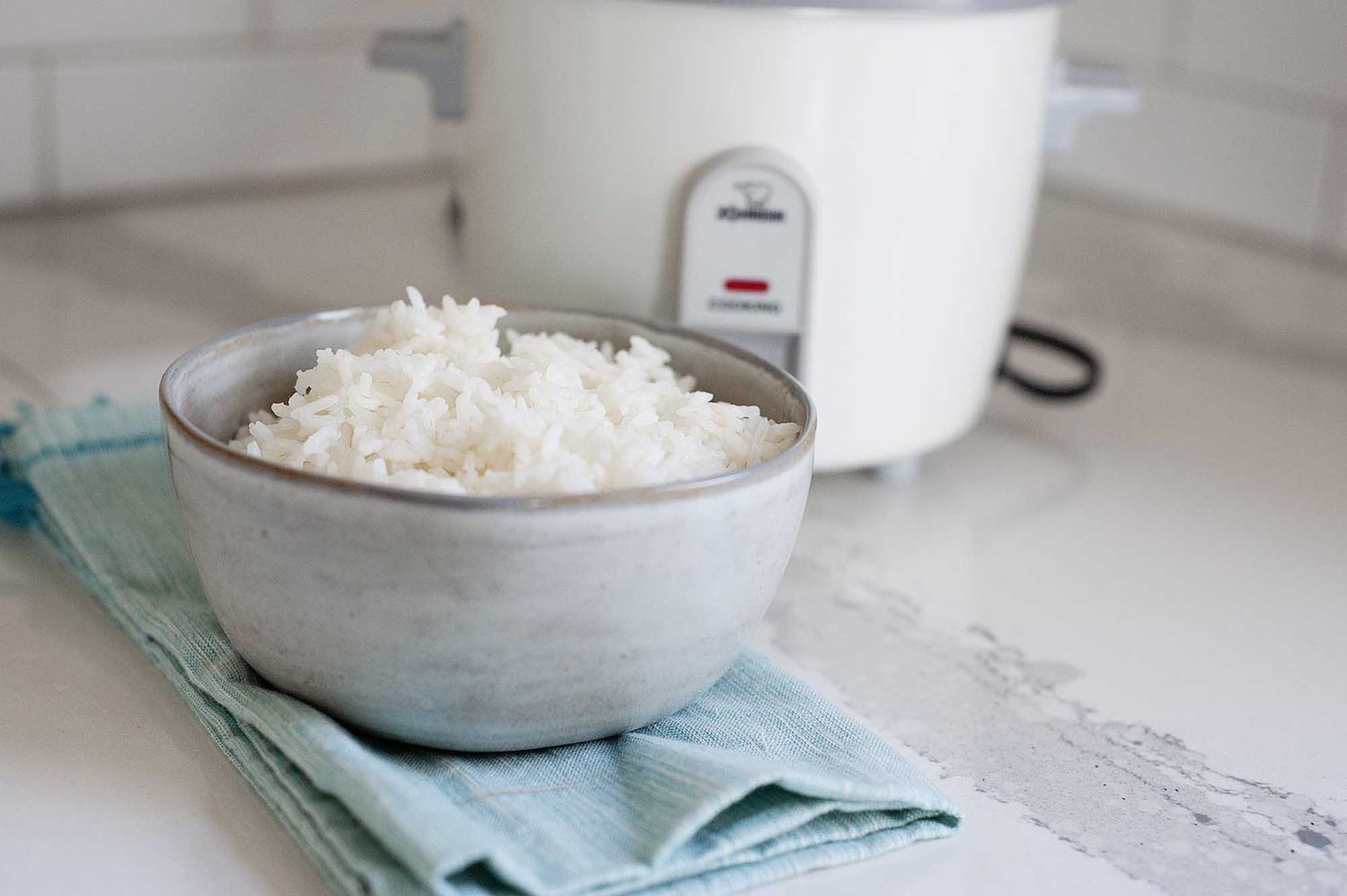
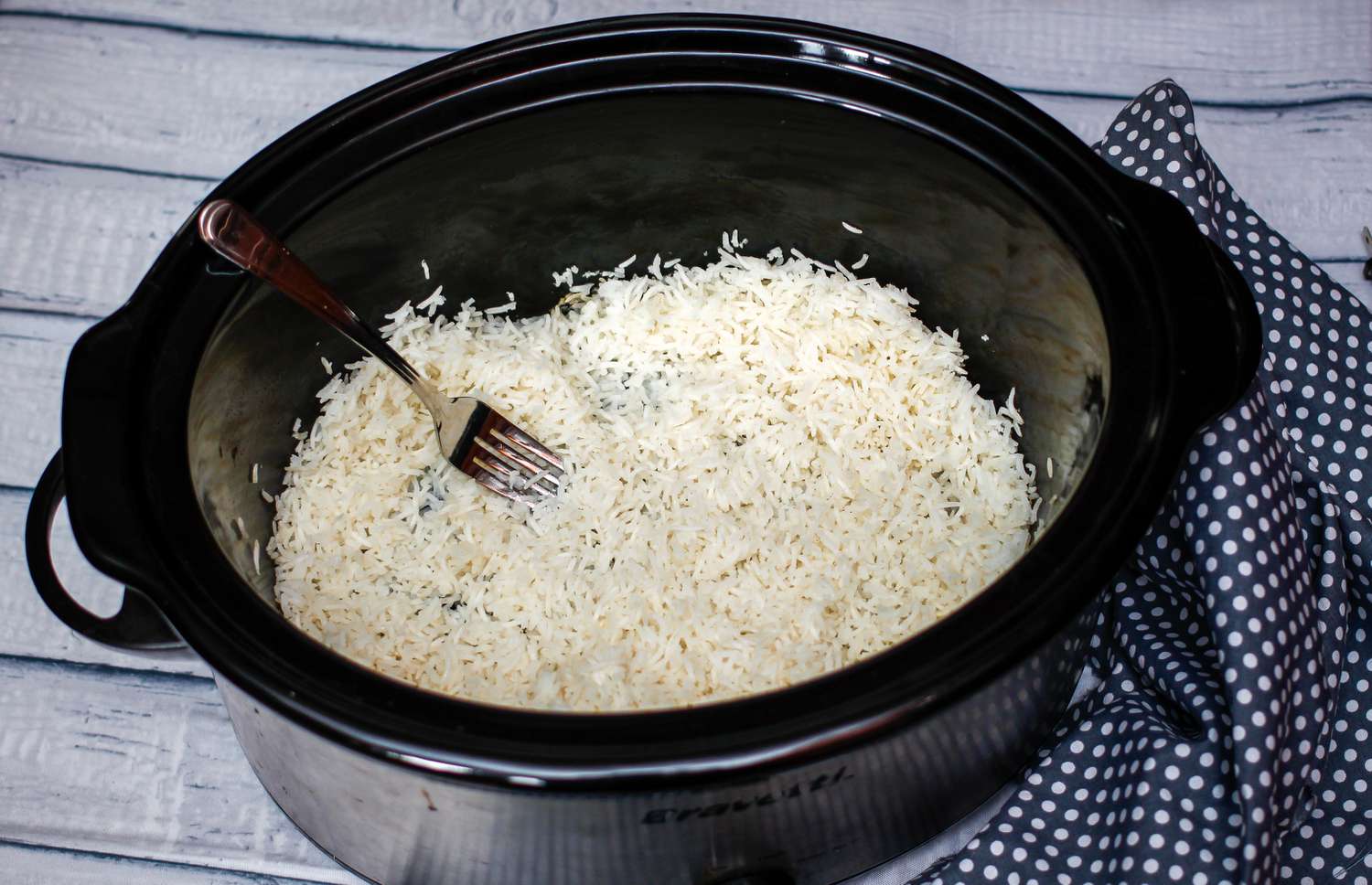
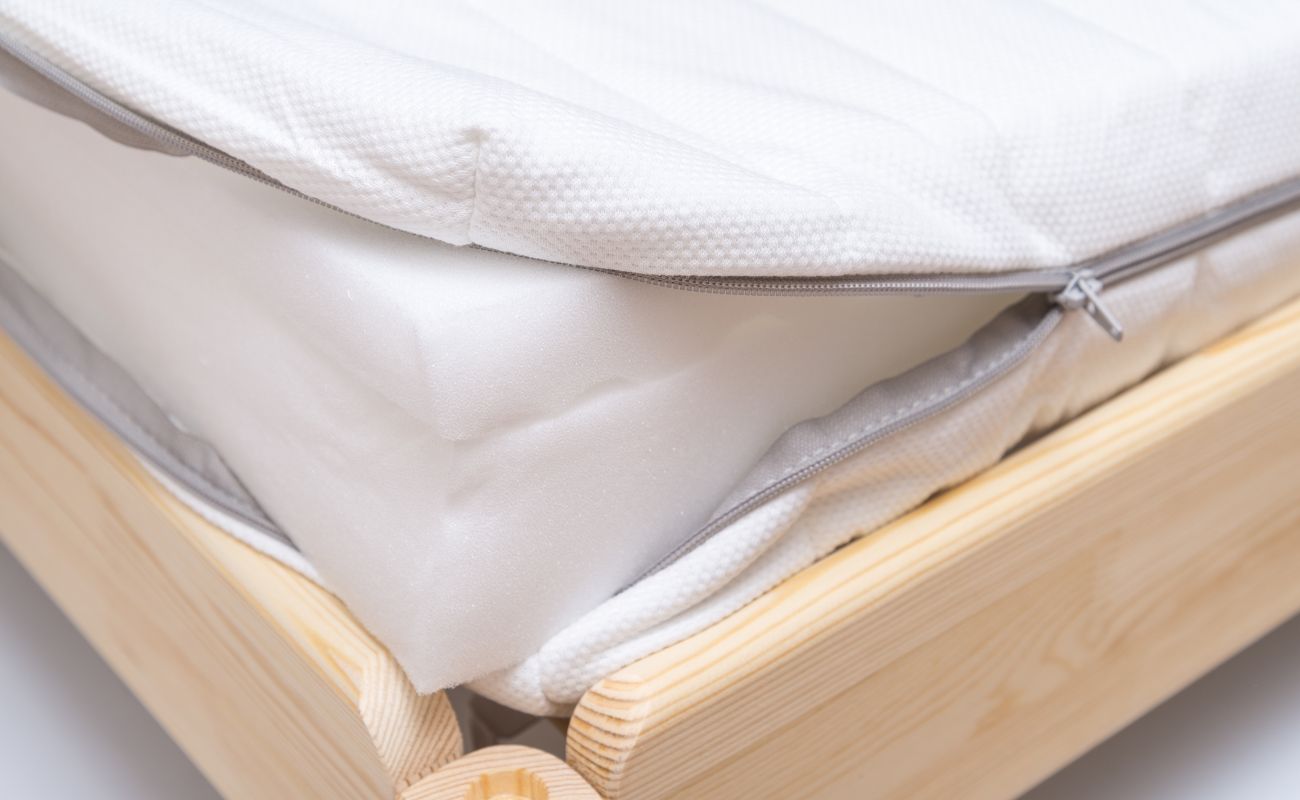

0 thoughts on “How Long Does A Rice Cooker Last”